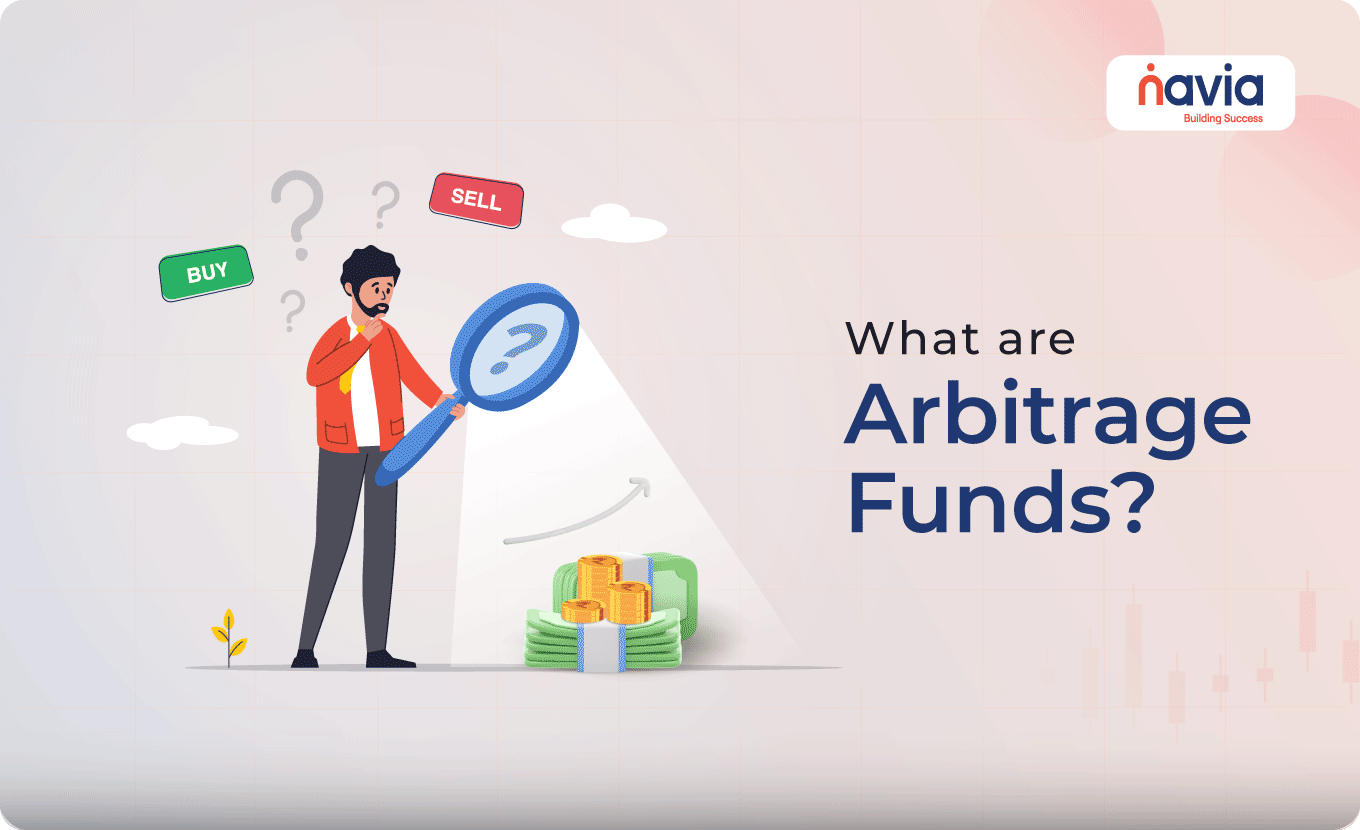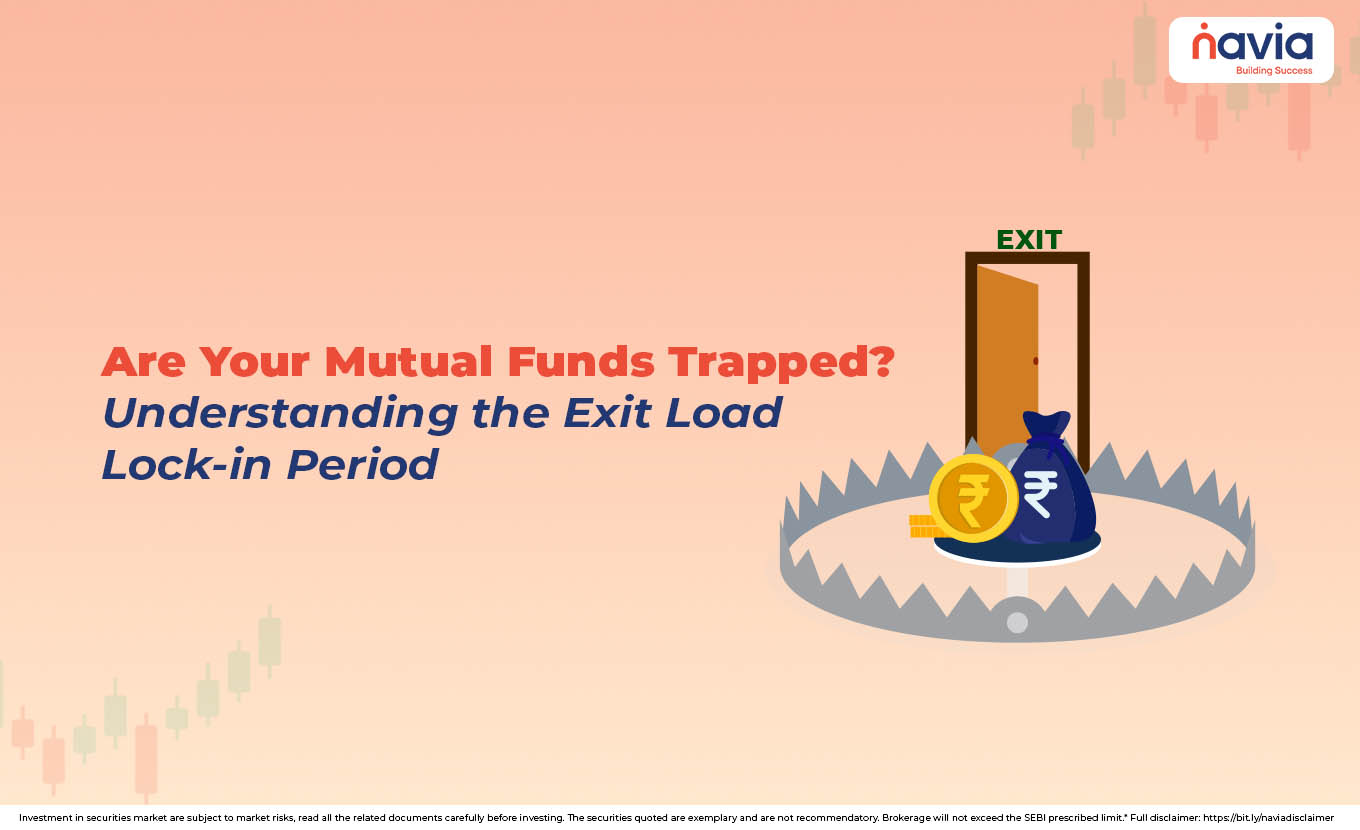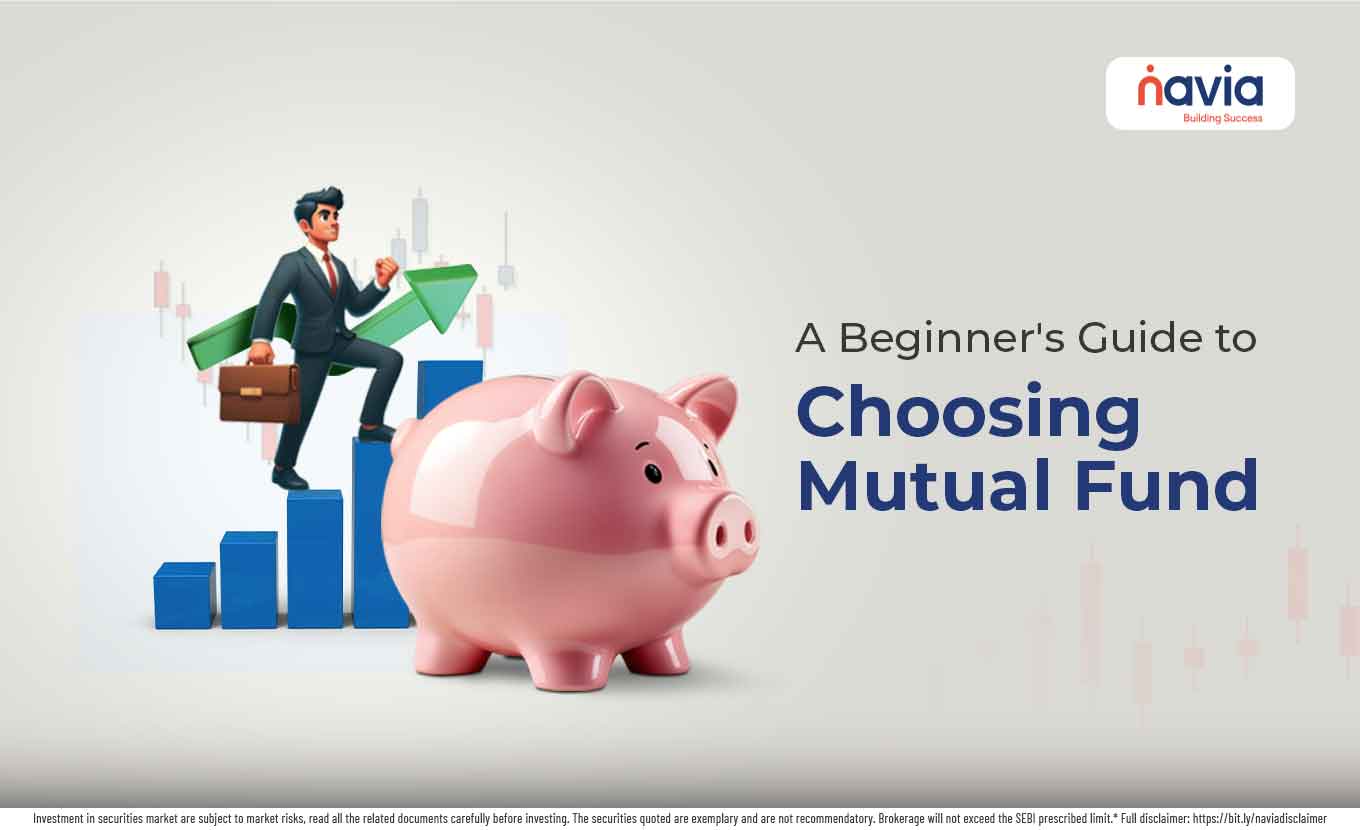What are Arbitrage Funds?

“If You Don’t Find a Way to Make Money While You Sleep, You Will Work Until You Die.”
These are the words of Warren Buffet from his rare interviews in 2017. He means the power of passive income and tells everyone to allow their money to work through stocks, dividends, and mutual funds.
Mutual funds offer a wide range of options to control every investor’s risk appetite. Among them, arbitrage funds stand out as a unique hybrid category because that leverages price differences in different markets to generate returns. In this blog, we’ll explain what are arbitrage funds, how they work, benefits, and who should consider investing in them in detail.
What are Arbitrage Funds?
Before diving into the deep meaning of arbitrage funds, you have to understand how the cash and futures market operate.
🠖 Cash Market: Regular buying and selling of stocks at their current price are also known as spot prices.
🠖 Futures Market: It involves contracts to buy or sell the same stocks at a future date for a fixed price.
There is a price difference between these two markets, at that time arbitrage opportunity arose. For example, if a stock is trading at ₹100 in the cash market and ₹103 in the futures market, the trader can buy it at ₹100 and sell it in the future market at ₹103. Here he locks a profit of ₹3 per share and is risk-free.
So, arbitrage funds are a type of mutual fund scheme that focuses on these short-term price differences between cash and future markets to make profits.
How Do Arbitrage Funds Work?
Let’s break down the process of generating funds through arbitrage funds with a simple example.
Example;
A stock named XYZ trading at ₹500 in the cash market and trading in futures market at ₹510. The fund manager buys XYZ stock at ₹500 in the cash market simultaneously sells the same quantity in the futures market at ₹510. It is considered the classic arbitrage trade; they are buying low (cash) and selling high (futures) to lock in a price difference.
At the time of expiry, the arbitrage trade settles as follows: The fund manager had bought XYZ stock at ₹500 in the cash market and sold its futures at ₹510. By expiry, both the cash and futures prices converge to ₹505.
The futures contract settles at ₹505, giving a profit of ₹5 (₹510 – ₹505). If the stock is also sold at ₹505, it yields another ₹5 profit (₹505 – ₹500). Thus, the total arbitrage gain is ₹10 per share, locked in by the price difference at the time of the trade.
Benefits of Arbitrage Funds
| Terms | Definition |
| Low Risk | Through this process the action of buying and selling happen simultaneously, so the market risk is minimal. |
| Suitable for Volatile Markets | The increasing volatility will create more opportunities for price mismatches, which arbitrage funds can exploit effectively. |
| Tax Efficiency | It is like equity funds, which means short-term (less than 1 year) capital gains are taxed at 15% and long term (more than 1 year) are taxed at 10%. |
| Quick Profits | Arbitrage trades are short-term, and they settle quickly, so the traders can realize the gains in a short amount of time. |
List of Top Arbitrage Funds
Here you can see some of the best arbitrage funds based on AUM, and past performance.
NAV & Returns data as on 04-Jun-25 *Source: Moneycontrol
| Scheme Name | Aum (Cr) | 6 M | 1 Yr | 5 Yr | 10 Yr |
| Kotak Equity Arbitrage Fund Direct Plan Growth | 63,309.51 | 3.73% | 7.53% | 6.31% | 6.52% |
| Invesco India Arbitrage Fund Direct Plan Growth | 20,029.39 | 3.67% | 7.48% | 6.36% | 6.49% |
| Bandhan Arbitrage Fund Direct Plan Growth | 8,656.28 | 3.72% | 7.51% | 6.13% | 6.40% |
| Edelweiss Arbitrage Fund Direct Pan Growth | 14,307.17 | 3.73% | 7.48% | 6.26% | 6.60% |
| Nippon India Arbitrage Fund Direct Plan Growth | 14,112.58 | 3.58% | 7.30% | 6.17% | 6.53% |
| Aditya Birla Sun Life Arbitrage Fund Direct Plan Growth | 15,895.77 | 3.78% | 7.56% | 6.15% | 6.42% |
| SBI Arbitrage Opportunities Fund Direct Plan Growth | 31,895.02 | 3.68% | 7.36% | 6.09% | 6.26% |
| Axis Arbitrage Fund Direct Plan Growth | 6,299.25 | 3.70% | 7.42% | 6.15% | 6.50% |
| ICICI Prudential Equity Arbitrage Fund Direct Plan Growth | 26,917.80 | 3.69% | 7.47% | 6.09% | 6.41% |
| UTI Arbitrage Fund Direct Plan Growth | 6,899.22 | 3.71% | 7.43% | 6.11% | 6.38% |
Note: Returns are indicative and may vary. Make sure to review the most recent data before making any investment decisions.

Things to Consider Before Investing in Arbitrage Funds
🠖 Arbitrage funds offer relatively low but stable returns, so it is not suitable for investors who are seeking high growth.
🠖 These funds perform better in volatile markets, where price differences between cash and futures segments are wider.
🠖 Arbitrage funds are taxed like equity mutual funds in India; short-term capital gains (STCG) are taxed at 15%, and long-term gains (LTCG) over ₹1 lakh are taxed at 10%.
🠖 It is an ideal option for short-term investment horizon (3–12 months) also they can earn better post-tax returns than savings
🠖 Some funds may charge an exit load if redeemed before a specific period, so, always check the scheme details before investing.
Who Should Invest in Arbitrage Funds?
Arbitrage funds are suitable for the following types of investors;
● Risk-averse investors who want equity-like benefits with lower market risk
● Investors who looking to get short-term surplus funds for 3-6 months
● The investors who need higher tax slabs than traditional debt instrument
● They want to diversify their portfolio with low risk
Final Thoughts
To sum up, what are arbitrage funds? They are a smart blend of low-risk strategy and tax efficiency and offer safe trading in a volatile market. But they don’t promise extraordinary returns, but they are considered a great short-term investment tool. If you want to invest safely without compromising tax advantages and risk appetite arbitrage is the best solution for you. Just be sure to assess fund performance, exit load terms, and your investment horizon before diving in.
Looking for low-risk investment options with better tax efficiency? Explore arbitrage funds on the Navia App today and make the most of market opportunities with minimal volatility.
Do You Find This Interesting?
Frequently Asked Questions
Can an arbitrage fund give negative returns?
Yes, arbitrage funds can give negative returns in rare cases, especially during extreme market volatility or if arbitrage opportunities fail to materialize.
What is the difference between Arbitrage funds and Hedge Funds?
Arbitrage funds exploit price differences between cash and futures markets for low risk returns, mainly in mutual fund format.
Hedge funds use aggressive, high-risk strategies across asset classes to generate high returns and are meant for high-net-worth investors.
How does an Arbitrage Fund work?
An arbitrage fund works by exploiting price differences between the cash and futures markets—buying stocks in the cash market and simultaneously selling them in the futures market. The fund locks in a risk-free profit when both prices converge at expiry.
What is the minimum amount required to invest in an Arbitrage Fund?
The minimum amount to invest in an arbitrage fund typically starts at ₹500 to ₹1,000 for SIPs and around ₹5,000 for lump-sum investments. However, it may vary depending on the mutual fund.
How safe is the arbitrage fund investment?
Arbitrage fund investments are relatively safe as they exploit price differences between markets with minimal directional risk.
Who can invest in arbitrage funds?
Arbitrage funds are ideal for conservative investors seeking low-risk, short-term investments with better tax efficiency.
What is the benefit of investing in Arbitrage funds?
Arbitrage funds offer low risk returns by exploiting price differences between cash and futures markets, and they are also tax efficient.
DISCLAIMER: Investments in the securities market are subject to market risks, read all the related documents carefully before investing. The securities quoted are exemplary and are not recommendatory. Brokerage will not exceed the SEBI prescribed limit.






